Conducting Preliminary Research
Barry Mauer and John Venecek
We discuss the following topics on this page:
We also provide the following activities:
 Introduction
Introduction
Sometimes called “pre-research,” preliminary research is an inventive stage in which you investigate possible topics of interest. For example, once you fully understand your assignment, the next step might be to conduct some background research online, or talk to friends and classmates. However, while it’s a good idea to try out your ideas with non-experts, the real test is to try them out with experts. If your ideas are not fully formed yet, you can ask experts to help guide you in the right direction. Undergraduate students often overlook this strategy, but it can be incredibly effective and it can lead to good research topics and resources. Let’s take a closer look at some more preliminary research strategies.
 Preliminary Research Strategies
Preliminary Research Strategies
Consider using some of the ideas below:
- Explore Literary Studies Journals: Scholars share their work through many venues, but the most important is peer-reviewed scholarly journals in their field. Princeton keeps a list of some of the most important literary studies journals. Imagine yourself as a future contributor to one of these journals!
- Work with a Mentor: A mentor is someone who can help and guide you as a scholar during the research process. Mentorship can take many forms; UCF offers many mentorship programs such as the Research And Mentoring Program (RAMP), McNair Scholars Program, Honors Undergraduate Thesis (HUT), and the Office of Undergraduate Research (OUR). Many of these offer financial and logistical support to students.
- Delve into the Invention Stage: This can be a messy process, so keep a notebook to jot down ideas and questions as they occur to you. You’ll need to develop a research question, so those notes may come in handy later. Also, think about what types of sources you’ll need to complete your project. The assignment may specify certain types, such as scholarly monographs and journal articles, but what else might you need? What about media and other primary sources? Where would you find them? Should you explore digital archives or make an appointment with an archivist?
- Manage your Time: Think about time-management and set milestones. Even though pulling all-nighters is a rite of passage for college students, your stress will be greatly reduced (and the quality of your research enhanced) if you’re not racing to finish everything at the last minute. Be sure to keep those milestones simple and achievable so you don’t get overwhelmed by unrealistic goals. We encourage you to use a planner!
- Investigate Professional Organizations: Many famous authors have organizations dedicated to their legacy. One of these is The William Faulkner Society, which assembles lists of scholarly journals, conferences and conventions, research centers and information sources, and interdisciplinary university institutes. Many such organizations also provide scholarships for students. Look through the contents of author societies’ websites, as well as recent journals and conference proceedings, to help you generate ideas for your own research.
- Talk to Experts: Finally, ask for help! You’re attending a large university where you’re surrounded by highly educated people. Don’t be afraid to schedule appointments and conduct interviews with them. Also, consider meeting with the subject librarian in your major to get an overview of key resources and tools available at the library.
Taking time to work through the preliminary research process will set the foundation for everything that comes after, and it will make your job easier.
A word about mentorship: having a mentor (whether faculty or peer) will vastly improve your experience as a researcher. Even many experienced researchers have their own mentors because they understand the value that comes with being a mentee. If you plan to work with a mentor, keep in mind a few points:
- If you are having difficulty with the research, put in some work on your own to address the problem before going to your mentor, The mentor’s job is to help you, not to do the work for you.
- Ask your mentor about their own research process so you can better understand the tasks and skills involved.
- Keep a positive attitude; even if you feel like you do not yet have the necessary knowledge or skills, tell yourself that you are in the learning stage and that you are doing your best.
- Recognize that a mentor is there to help but may not be able to meet all your needs. Take ownership of your own learning and research.
- It is okay to seek mentorship from more than one person.
Background Research [1 min 20 sec] [1]
For more advice on Conducting Preliminary Research, consider the following from WritingCommons.org: [2]
The goal of Preliminary Research is not necessarily to become an authority on a specific topic so much as to identify conversation chatter: across disciplines, what are experts talking about? And, ultimately, if given a choice, what interests you the most? Preliminary Research could involve
- discussions with friends about ideas.
- interviews with experts, bosses, clients, and teachers.
- scanning a wikipedia page or Google search
- skimming over documents to learn about the genres and research methods of particular discourse communities/community of practice.
 Conducting Preliminary Research [Refresher]
Conducting Preliminary Research [Refresher]
If you are using an offline version of this text, access the quiz for this section via the QR code.
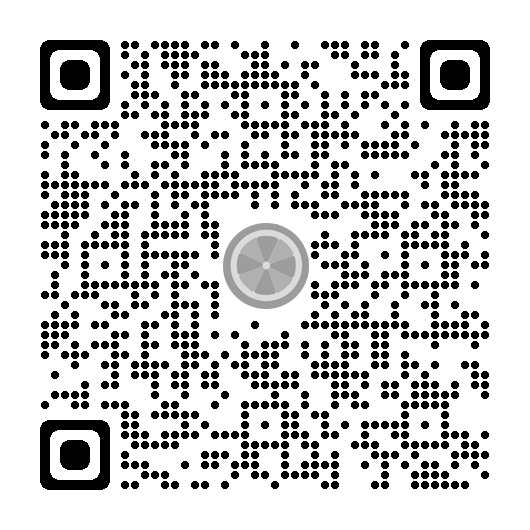
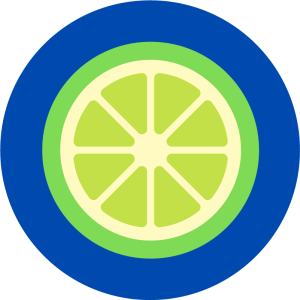 Finding Scholars
Finding Scholars
Throughout these chapters we have been emphasizing the idea of scholarship as conversation. This notion extends beyond the written paper to the entire research process, and nowhere is it more important than during your literature review! Just to reiterate this point, here are a few ideas to consider:
- Talk To Your Instructor: Don’t be afraid to talk to your instructor at different stages of your research. This is a good way to stay on track, make sure the scope and purpose of your project are on target, and to make sure you’re finding the right types of sources. Your instructor may also know about important books or articles you haven’t discovered yet as well as key researchers or theorists who work in your area:
- Meet with a Librarian: University and college libraries usually offer a research consultation service. It is recommended to schedule an appointment as early in the process as possible. Consultations generally focus on the same search strategies discussed throughout this course, but they will be tailored to your individual needs/project.
- Interview an Expert: Whether at your university or someone you’ve discovered during your literature review, consider setting up an informational interview. To get started, introduce yourself, briefly describe your research project, explain why you’re contacting them, and request an interview or assistance with a specific research problem. You might not get a response from everyone, but you’ll be surprised how willing established researchers are to talk to student scholars who show initiative.
The best way to find scholars to talk to about your work is to look through the scholarly literature and identify the authors of the work you like. You can also look through the citations in their works to identify other authors. Then you can look up those people online. Most researchers are affiliated with institutions like universities and they have email addresses you can find on their faculty webpage. You can write to them at their institution, share your interest in their work, and ask for a consultation. Another approach is to contact experts through commercial websites like Academia.edu and Researchgate.com. You can search for experts by topic and contact them through the site. Not all scholars check their messages through the site, however, so sometimes you have to search for an alternate email address or keep looking for other scholars.
 Finding Scholars [Refresher]
Finding Scholars [Refresher]
If you are using an offline version of this text, access the quiz for this section via the QR code.
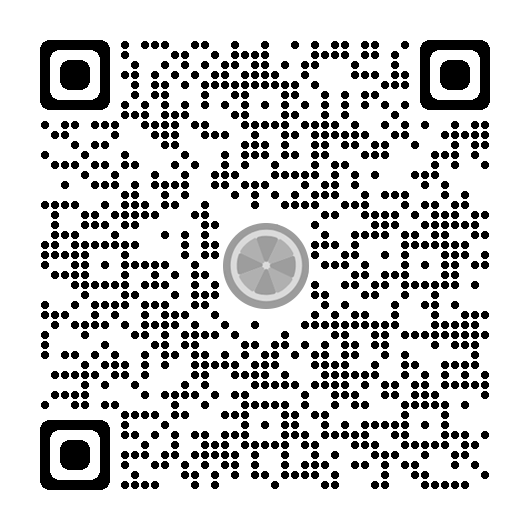
 Exercises
Exercises
- List three things you have researched (they don’t have to be related to school projects). Discuss your experiences with any of the research you listed. Which parts did you enjoy the most? Where did you have the most difficulty? Did you find what you were looking for? How valuable was the information and the experience?
- Capture some basic facts and considerations about three literary works (an academic literary anthology is a good place to look). The purpose of this assignment is to choose a literary work (or works) that you might wish to research for your final research project. The three works don’t have to have any relation to one another, and you are not committing to any of them for your final project. You can decide to choose something else or change your mind later.
Title of literary work Author Publication date Literary genre / theme Nation or region of author Brief description Initial thoughts Feel free to use a grid format, as above, or just make a list of these items under each entry.
- Sometimes the publication date is tricky – a work might have remained unpublished for a long period of time. If so, note when it was written (approximately) and then published. Sometimes a work may have been revised and republished. If so, indicate the publication date of the version you read (its original publication date, and not the publication date of the anthology).
- Literary genre refers to whether a work is a novel, short story, drama, poem, parable, allegory, non-fiction, essay, folk or fairy tale, sacred text, children’s literature, or memoir. Additionally, literary themes can be part of genres as in comedy, tragedy, lyric, epic, detective or crime stories, science fiction, supernatural, historical, etc. These are not strict categories and a work may combine more than one.
- Nation or region of author can be tricky as well. For instance, an author may write in a country far from where they were born and/or raised. Or they may be born in a country that is divided by region. Note anything significant about the author’s place(s).
- The brief description is just a sentences or a few sentences to indicate what the literature is about. It does not need to include a plot summary or a complete list of characters and themes. For example, we could say that Homer’s Odyssey is the story of a hero and the obstacles he faces on his journey home from war.
- Initial thoughts are just that: thoughts upon a first reading. These could be about things you notice, things you like or dislike, things that intrigue you, things that are confusing, things that are mysteries, things that are easy or difficult, elements of the texts such as style, voice, meter, diction, etc. The idea is to identify some things you might want to research.
- Capture some basic facts and considerations about two works of literary theory or criticism. Select two works of literary criticism or theory (from any anthologies or stand alone works). The purpose of this assignment is to get a sense of how and why such works are written.
Title of work Author(s) Publication date Major theory or type of criticism Nation or region of author(s) Brief description Initial thoughts Feel free to use a grid format, as above, or just make a list of these items under each entry.
- Sometimes the publication date is tricky – a work might have remained unpublished for a long period of time. If so, note when it was written (approximately) and then published. Sometimes a work may have been revised and republished. If so, indicate the publication date of the version you read (its original publication date, and not the publication date of the anthology).
- Major theory or type of criticism refers to the major literary theories (Marxist, feminist, post-colonial, formal, historical, linguistic, audience studies, structuralist, post-structuralist, etc.) or the themes or issues being addressed. These are not strict categories and a work may combine more than one.
- Nation or region of author can be tricky as well. For instance, an author may write in a country far from where they were born and/or raised. Or they may be born in a country that is divided by region. Note anything significant about the author’s place(s).
- The brief description is just a sentences or a few sentences to indicate what the literary criticism or theory is about. It does not need to include a summary of the whole argument, but should include the major claim(s).
- Initial thoughts are just that: thoughts upon a first reading. These could be about things you notice, things you like or dislike, things that intrigue you, things that are confusing, things that are mysteries, things that are easy or difficult, elements of the texts such as style, voice, diction, etc.
- If there are any elements of your assignment that need clarification, please list them.
- What was the most important lesson you learned from this page? What point was confusing or difficult to understand?
- NKU, Steely Library, director. Background Research. YouTube, YouTube, 13 Dec. 2017, https://www.youtube.com/watch?v=0gXGMJAXSU4&t=74s. Accessed 1 Apr. 2022. ↵
- Writing Commons. “Preliminary Research.” Writing Commons, 11 Aug. 2020, https://writingcommons.org/section/invention/preliminary-research/. ↵
Students often overlook the importance of managing and organizing their research as part of the literature review. There are many programs available online, such as Zotero. There is no one proper way to manage your research, but it’s important to have a system that works for you.
As you continue down your path to becoming a researcher, one of two things tends to happen. A) you have a closet full of printed journal articles that you are saving “just in case”, but you have no idea what’s in there, or why it was important; or B) you are constantly trying to remember what that one article was that you read that one time, but it wasn’t relevant at the time, so you threw it away; or C) all of the above.
Luckily there are citation management programs to help you wrangle and organize your research. As a bonus, they will format your bibliography into the appropriate style at the click of a button.
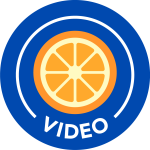 Watch Jada discuss her approach to managing her research:
Watch Jada discuss her approach to managing her research:
There are many citation management options to choose from. The key is to find the one that works best with your research style. The most popular freely available options are Mendeley and Zotero.
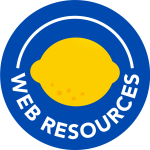 To help get started, see the following sites:
To help get started, see the following sites:
For more information about each option, check out the UCF library’s guides to citation management
Looking for an easy way to compare the different citation management system features? See this chart created and maintained by Penn Libraries.
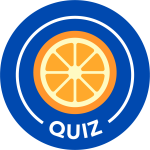 Citation Management Refresher:
Citation Management Refresher:

